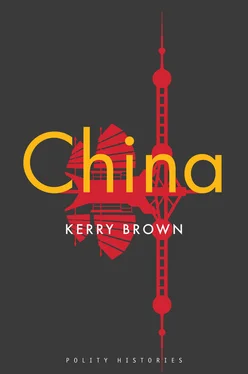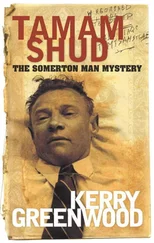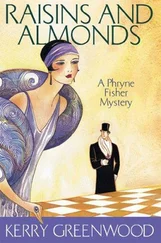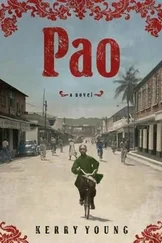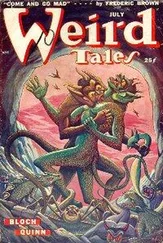1 Cover
2 Front Matter China Kerry Brown polity
3 Map
4 Abbreviations Abbreviations BRIBelt and Road InitiativeCCDICentral Commission for Discipline and InspectionCPCCommunist Party of ChinaCRCultural RevolutionGATTGeneral Agreement on Tariffs and TradePLAPeople’s Liberation ArmyPRCPeople’s Republic of ChinaSEZSpecial Economic ZoneTVEsTown and Village EnterprisesWTOWorld Trade Organization
5 About the Author About the Author Kerry Brown is Professor of Chinese Studies and Director of the Lau China Institute, King’s College, London, and Associate Fellow on the Asia Pacific Programme at Chatham House, London. From 2012 to 2015, he was Professor of Chinese Politics and Director of the China Studies Centre at the University of Sydney. Prior to this, from 1998 to 2005, he served as a diplomat in the British Foreign and Commonwealth Office, and then from 2006 to 2012 was Senior Fellow and then Head of the Asia Programme at Chatham House. He was Director of the Europe China Research and Advice Network (ECRAN) funded by the European Union from 2011 to 2014. He is the author of twenty books, the most recent of which are China’s Dream: The Culture of Chinese Communism and the Secret Sources of its Power (Cambridge: Polity, 2018) and The Trouble with Taiwan: History, the United States and a Rising China (London: Zed Books, 2019).
6 1 China’s Arduous March to Modernity 1 China’s Arduous March to Modernity Chinese history is long and complex. It is a story that splits into many different themes and plots. Trying to understand China without having at least some knowledge of this historical background is, nevertheless, impossible. This is particularly true today, when current Chinese leaders daily appeal to the glorious, unique past of their country as a source of their authority and power in the present. The complexity of this history, however, means that there are many different interpretations and meanings that can be harvested from it. This book aims to present at least some of these, and show why they are important. Despite China’s global prominence in the twenty-first century, these Chinese histories are not well known by people in Europe or the United States (broadly what we can call ‘the West’). This lack of knowledge is compounded by the politicized way that China’s history is told within the current People’s Republic of China (PRC). This book aims at helping to rectify this situation, giving those with no specialist engagement with China a workable outline by which to make sense of this vast story. One aim of this book is to demonstrate that, however marginal China may have seemed in much of the period since the mid-nineteenth century, for a country and a culture accounting for a fifth of humanity, its story is a global one. It was an aberration that so little of this story was known outside of China. What we are witnessing now is a long-overdue correction to this imbalance – something that should have been done earlier.
What is China? China’s Struggle to Catch Up The Key Chinese Modernizers Competing Visions: Sun, Chiang, and Mao Risen from the Ashes: China at War and After Notes
7 2 China Reconstructs (1949–1958) Economic Priorities Land Reform: China’s Earliest Harvest of Sorrows Cleansing of the People China and the World Notes
8 3 The Years of Dissent (1958–1966) The Sino-Soviet Split Liberalization with Maoist Characteristics Going to the Moon: The Great Leap Forward Death in the Countryside: The Great Famines Four Modernizations: Their First Appearance Notes
9 4 The Great Proletariat Cultural Revolution (1966–1976) Bombard the Headquarters Smashing the Four Olds ‘Who Hits Me, I Hit Back’: Social Divisions The Mystery of Lin Biao Revolution on the Outside: Détente with the United States Notes
10 5 Reform and Opening Up (1976–1989) Ideological Battles in the 1970s: The Three Paths The Means to Economic Transformation Crossing the River by Feeling the Stones Making Money, Losing Faith Tiananmen Square: The End of the China Dream, Phase One Notes
11 6 Starting Over after Tiananmen (1989–2001) Aftermath of 1989: Steadying the Ship The Taiwan Strait Issue The New Narrative: Patriotism and Love of the Chinese Motherland The Zhu Rongji Reforms Social and Political Change in the 1990s Painting the Capitalists Red Notes
12 7 The Hu Jintao Era (2001–2012) The New Long March: China’s Entry to the WTO The Life of China’s Peasants: China’s Sorrow Contention in the Cities The Era of the Peaceful Rise Political Reform with Chinese Characteristics Olympic Jumps China’s Conscience: Liu Xiaobo Notes
13 8 China’s Dream Realized under Xi Jinping? China’s Dreaming Rejuvenation Starts at Home: Cleansing the Party China’s World Social Life in the China Dream A Happy Ending? Notes
14 Further Reading
15 Index
16 End User License Agreement
1 Cover
2 Contents
3 Begin Reading
1 ii
2 iii
3 iv
4 vi
5 vii
6 viii
7 ix
8 x
9 1
10 2
11 3
12 4
13 5
14 6
15 7
16 8
17 9
18 10
19 11
20 12
21 13
22 14
23 15
24 16
25 17
26 18
27 19
28 20
29 21
30 22
31 23
32 24
33 25
34 26
35 27
36 28
37 29
38 30
39 31
40 32
41 33
42 34
43 35
44 36
45 37
46 38
47 39
48 40
49 41
50 42
51 43
52 44
53 45
54 46
55 47
56 48
57 49
58 50
59 51
60 52
61 53
62 54
63 55
64 56
65 57
66 58
67 59
68 60
69 61
70 62
71 63
72 64
73 65
74 66
75 67
76 68
77 69
78 70
79 71
80 72
81 73
82 74
83 75
84 76
85 77
86 78
87 79
88 80
89 81
90 82
91 83
92 84
93 85
94 86
95 87
96 88
97 89
98 90
99 91
100 92
101 93
102 94
103 95
104 96
105 97
106 98
107 99
108 100
109 101
110 102
111 103
112 104
113 105
114 106
115 107
116 108
117 109
118 110
119 111
120 112
121 113
122 114
123 115
124 116
125 117
126 118
127 119
128 120
129 121
130 122
131 123
132 124
133 125
134 126
135 127
136 128
137 129
138 130
139 131
140 132
141 133
142 134
143 135
144 136
145 137
146 138
147 139
148 140
149 141
150 142
151 143
152 144
153 145
154 146
155 147
156 148
157 149
158 150
159 151
160 152
161 153
162 154
163 155
164 156
165 157
166 158
167 159
168 160
169 161
170 162
171 163
172 164
173 165
174 166
175 167
176 168
177 169
178 170
179 171
180 172
181 173
182 174
183 175
184 176
185 177
186 178
187 192
188 193
189 194
190 195
191 196
192 197
193 198
194 199
Jeff Kingston, Japan
David W. Lesch, Syria
Dmitri Trenin, Russia
Kerry Brown
Читать дальше
